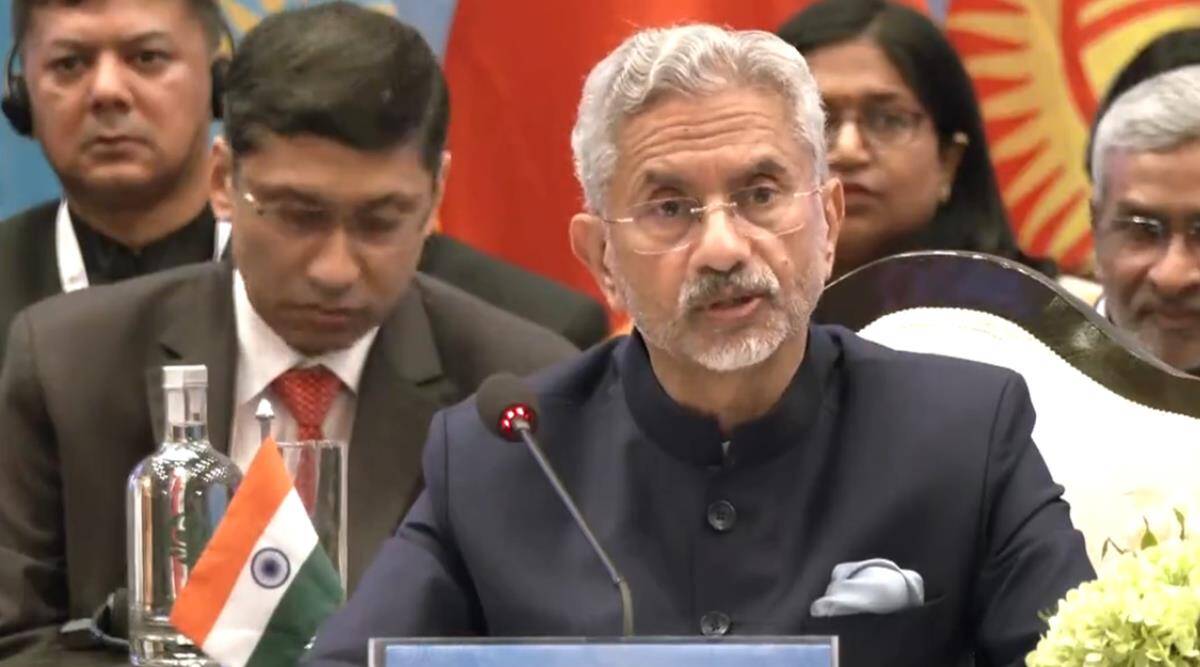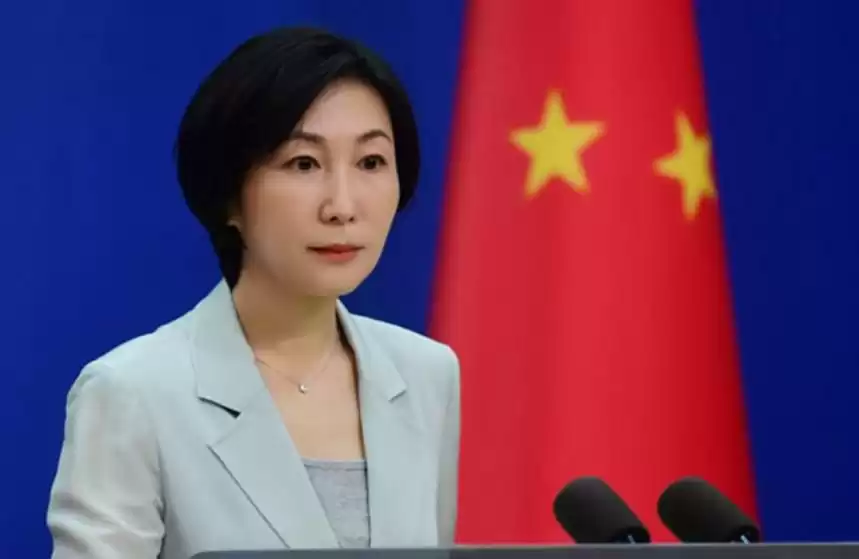Benaulim (Goa): The channel of finances for terrorist activities must be blocked without any distinction and terrorism in all its forms including cross-border terrorism stopped, External Affairs Minister S Jaishankar said Friday at a conclave of the Shanghai Cooperation Organisation (SCO) in presence of his Pakistani counterpart Bilawal Bhutto-Zardari.
In his address at the SCO Council of Foreign Ministers’ meeting, Jaishankar also underlined that connectivity is key to progress but asserted that it must come with respect for sovereignty and territorial integrity of all member states, amid increasing criticism of China’s Belt and Road Initiative.
Besides Bhutto-Zardari, the meeting at a luxury hotel in this beach resort was attended by Chinese foreign minister Qin Gang, Russia’s Sergey Lavrov and their counterparts from other SCO member nations.
Chairing the conclave, Jaishankar also delved into the situation in Afghanistan and the impact of COVID-19 pandemic as well as the consequences of geo-political upheavals that impacted supplies of energy, food and fertilisers.
Calling for united efforts to combat terrorist activities, Jaishankar said that taking the eyes off terrorism would be detrimental to security interests of the grouping and that when the world was engaged in facing the Covid pandemic and its consequences, the menace of terrorism continued unabated, in an apparent reference to Pakistan.
“We must not allow anybody — individual or State — to hide behind non-State actors,” he said.
The external affairs minister said India firmly believes that there can be no justification for terrorism and noted that combating the menace is one of the original mandates of the SCO.
“While the world was engaged in facing Covid and its consequences, the menace of terrorism continues unabated. Taking our eyes of this menace would be detrimental to our security interests,” he said.
“We firmly believe that there can be no justification for terrorism and it must be stopped in all its forms and manifestations, including cross-border terrorism,” he said.
“The channel of finances for terrorist activities must be seized and blocked without distinction. Members need not be reminded that combating terrorism is one of the original mandates of the SCO,” Jaishankar added.
On Afghanistan, he said the unfolding situation in that country remains at “centre of our attention”.
“Our efforts should be directed towards the welfare of the Afghan people. Our immediate priorities include providing humanitarian assistance, ensuring a truly inclusive and representative government, combating terrorism and drug trafficking and preserving the rights of women, children and minorities,” he said.
Jaishankar said connectivity must come with respect for sovereignty and territorial integrity of all member states.
India has been severely critical of the BRI as the USD 50 billion project includes the so-called China-Pakistan Economic Corridor (CPEC). The CPEC that passes through Pakistan-Occupied-Kashmir.
The external affairs minister said India has proposed a New Delhi Declaration as an SCO Summit Declaration and four other thematic joint statements on cooperation in de-radicalisation, strategies, promotion of millets, sustainable lifestyles to address climate change and digital transformation.
As current chair of the SCO, India will host the annual summit of the grouping in the first part of July.
Jaishankar also sought support of the member states for the long-standing demand of India to make English as the third official language of the SCO. At present, Russian and Chinese are the official languages of the grouping.
He appreciated the support of member countries for India’s proposal of creation of two new working groups on startups and innovation and traditional medicine.
In his address, Jaishankar noted that current crises facing the world have exposed a credibility and trust deficit in the ability of global institutions to manage challenges in a timely and effective manner. He said reform and modernisation of the SCO will aid a more contemporary outlook which India will actively support.
“As a result of the COVID-19 pandemic and geopolitical upheavals, the world is today facing a multitude of challenges. These events have disrupted global supply chains, leading to serious impact on the supply of energy, food and fertilizers and cascading effects on developing nations,” he said.
Jaishankar said these crises have also “exposed a credibility and trust deficit” in the ability of global institutions to manage challenges in a timely and efficient manner.
“These challenges however are also an opportunity for Member States of the SCO to collaborate and address them collectively. With more than 40 per cent of the world’s population within the SCO, our collective decisions will surely have a global impact,” he noted.
The external affairs minister also noted the progress for the admission of Iran and Belarus as full member states of the SCO.
Under India’s ongoing presidency of SCO, we have successfully concluded more than a hundred meetings and events, including 15 ministerial level meetings, he added.
In his remarks, Bhutto-Zardari said the “collective security of our peoples is our joint responsibility. Terrorism continues to threaten global security,” he said.
“Let’s not get caught up in weaponizing terrorism for diplomatic point scoring,” he said, in remarks that appeared to take a pot-shot at the Indian side.
“When I speak on this topic, I do so not only as the Foreign Minister of Pakistan whose people have suffered the most in terms of number of attacks and number of casualties. I also speak as the son whose mother was assassinated at the hands of terrorists,” the Pakistan foreign minister said.
Bhutto-Zardari said he and his country are firmly committed to be part of regional and global efforts for eradicating this menace.
“This requires not only a comprehensive approach but also a collective approach. It demands we address the root causes as well as the threats posed by specific groups. It requires that we let this challenge unite us to fight it rather than divide us to become its victim. Our success requires us to isolate this issue from geo-political partisanship,” he added.
The Pakistan foreign minister, talking about the challenge of terrorism, said that practical and pragmatic solutions exist to put an end to “this chapter once and for all”.
We must stop conflating non-state actors with state actors. Condemn all forms of terrorism including state sponsored terrorism,” he added.
Bhutto-Zardari also called upon the “interim Afghan authorities” to uphold their commitments on not allowing the use of Afghan soil for terrorism.
The Pakistan foreign minister also made a special mention of the “commendable role” China has recently played in bridging differences between Saudi Arabia and Iran.
“We must ensure respect for these universally recognized principles within the SCO. Unilateral and illegal measures by States in violation of international law and Security Council resolutions run counter to the SCO objectives,” he said.
The SCO is an influential economic and security bloc and has emerged as one of the largest transregional international organisations.
The SCO was founded at a summit in Shanghai in 2001 by the presidents of Russia, China, the Kyrgyz Republic, Kazakhstan, Tajikistan and Uzbekistan.
India and Pakistan became its permanent members in 2017.
India was made an observer at the SCO in 2005 and has generally participated in the ministerial-level meetings of the grouping, which focus mainly on security and economic cooperation in the Eurasian region.
India has shown a keen interest in deepening its security-related cooperation with the SCO and its Regional Anti-Terrorism Structure (RATS), which specifically deals with issues relating to security and defence.




